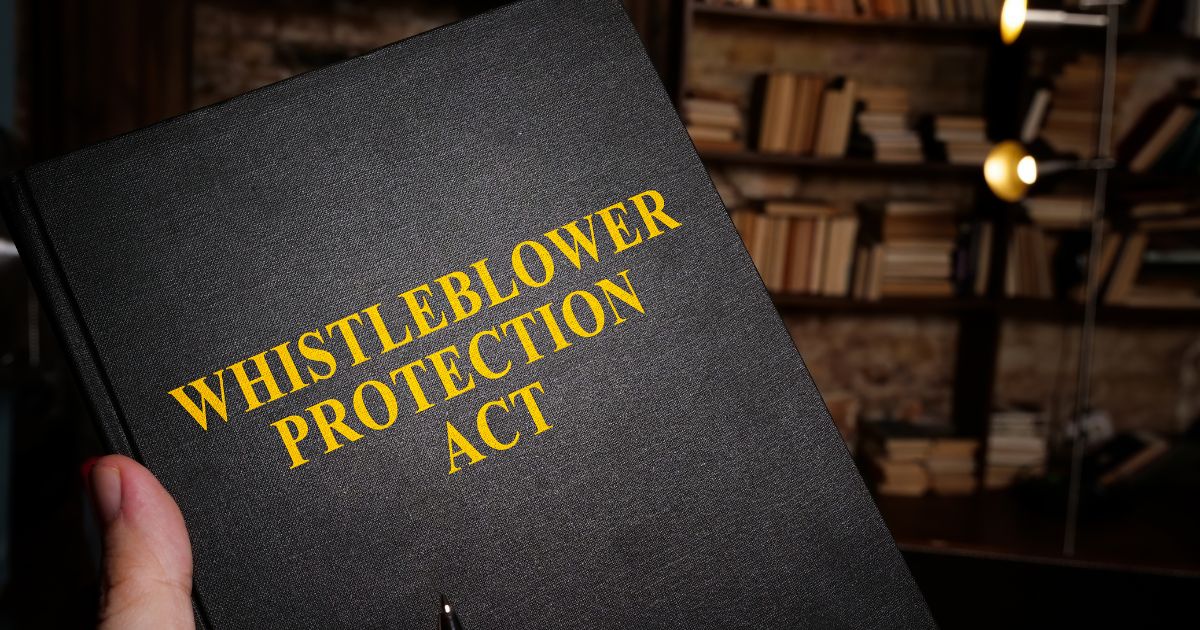How Are Whistleblowers Protected Against Retaliation?
October 12, 2022
Behaving ethically is the responsibility of everyone in a company, from the C-suite to the lowest-ranking employee. Whether companies have five employees or hundreds, there is always a risk that someone is a toxic employee.
Whistleblowers often face retaliation at the hands of their employers after alerting supervisors about fraud and corruption. Whistleblowers are a significant defensive line against corruption and misconduct in a company. When these individuals report wrongdoing and mischief, they protect a company’s integrity and reputation. Moreover, vendors and customers want to work with companies they know are committed to ethics and compliance.
Although whistleblowing provides company protection against wrongdoing, they can face vilification, ostracism from their peers, threats, demotion, and job dismissal. Too often, managers and other company executives do not always value whistleblowing. Sometimes, a whistleblower will suffer from retaliation after they report their colleagues or employer.
Retaliation ranges from firing or demoting an employee to adverse performance reports and removing responsibilities or marginalizing employees within the company. Retaliation can also take the form of harassment from co-workers, management, and others.
Workplace retaliation violates equal opportunity laws and anti-fraud and anti-corruption laws, subjecting companies to stiff penalties at the hands of enforcement agencies.
In New Jersey, whistleblowers are protected under the Conscientious Employee Protection Act (CEPA). Under this law, employees cannot be retaliated against for the following activities:
- Reporting: Complaining, reporting, or disclosing information to a supervisor or public entity about illegal activities by their employer or violations of safety or security standards.
- Filing: Employees have a right to take legal action against their employer through litigation, arbitration, or an administrative proceeding.
- Testifying: Employees cannot be punished for testifying in a legal proceeding about an employer’s misconduct.
- Opposing: Employees can refuse to participate in any activity that they believe is illegal and harmful.
To qualify for whistleblower protection under the CEPA, you (and your lawyer) must be able to prove the following:
- You were fired, demoted, punished, harassed, or retaliated against for taking part in protected legal activity.
- Your employer was aware that your actions were protected whistleblower conduct.
- You were retaliated against for whistleblowing.
- You reasonably believed that your employer’s conduct was illegal.
It is a huge undertaking to prove that you were subjected to whistleblower retaliation. It is crucial to seek an attorney to help you with your whistleblower claim.
Cherry Hill Employment Lawyers at Sidney L. Gold & Associates, P.C. Will Ensure Your Rights Are Protected if You Are a Whistleblower
If you suspect your employer has taken adverse employment action against you because of whistleblowing, you have legal rights worth protecting. Contact one of our experienced Cherry Hill employment lawyers at Sidney L. Gold & Associates, P.C. today to learn more about your options. Call us at 215-569-1999 or contact us online to schedule a free consultation. We are located in Philadelphia and Pennsauken, New Jersey, and we proudly serve clients throughout Southeastern Pennsylvania and South Jersey, including Cherry Hill, Haddonfield, Marlton, Moorestown, and Mount Laurel.





























